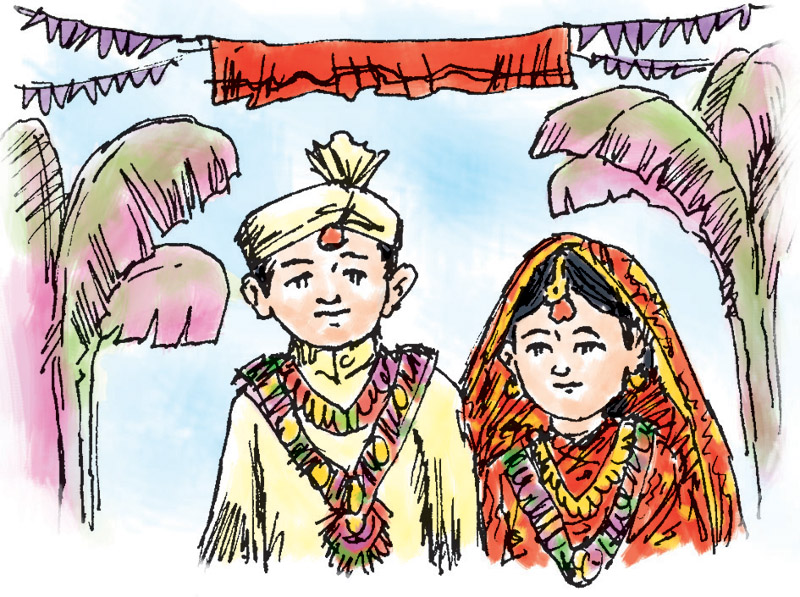LETTERS: Society must come forward
This refers to the thought-provoking article "Child Marriage" by Namrata Sharma (THT, March 22, Page 8). The practice has been banned long ago but the ban has not been implemented. The battle against child marriage cannot be won unless the people revolt against the practice. Child marriage continues to take place in backward rural areas for various reasons. Parents feel it is safer to marry off their daughters before they attain puberty while menfolk in some communities believe marriage with a young girl will cure them of sexually transmitted diseases etc. It is society that has to realise that such marriages are a crime not only against children but the entire humanity. Moral pressure should be exerted by religious and social leaders against this social evil with a helping hand from the police. The attitude of the authorities towards the evil has been casual at best. Government also does not interfere with the beliefs due to fear of losing votes. It is therefore for the communities themselves to reform if child marriage is to be abolished.
Vinod C. Dixit, Ahmedabad
Inflation
Most economists relay on a theory to explain the long run determinant of the price level and the inflation rate. In an economy most prices tend to rise over time. There is increase in overall level of price. The rate of change in the overall level of price is generally known as inflation. And currently Nepal is somehow affected by the unanticipated inflation. The inflation rate in Nepal was recorded at 12.10% in January of 2016. Inflation rate in Nepal averaged 8.36% from 1964 until 2015, reaching an all time high of 30.42% in May of 1966 and a record low of -11.54 in May of 1967. Inflation rate in Nepal is reported by the Nepal Rastra Bank. This year’s inflation rate is comparatively higher than past years. And the main reason behind it is the economic blockade recently Nepal faced. Due to the economic blkaocde from India the prices of every product has risen. Although there is no obstruction in the borders the price of essential goods has risen. We can take an example of petrol. Before the economic blockade the price was 130 per liter. The price of every product is going up at a quicker pace than people’s wages. Everyone thinks inflation is evil. But from different point of view inflation also helps the economy grow. It depends on whether inflation is anticipated or unanticipated. If the inflation rate corresponds to what the majority of people are expecting then we can compensate the cost. The problem arises when there is unanticipated inflation which somehow Nepal can face as explained above. Finally, we can come to the conclusion that inflation means an economy is growing. So little inflation can just be bad as hyper inflation because lack of inflation may indicate that the economy is weakening. So it is difficult to label the inflation as either good or bad. It depends on the overall economy as well as your personal situation.
Keerun Pant, via email






